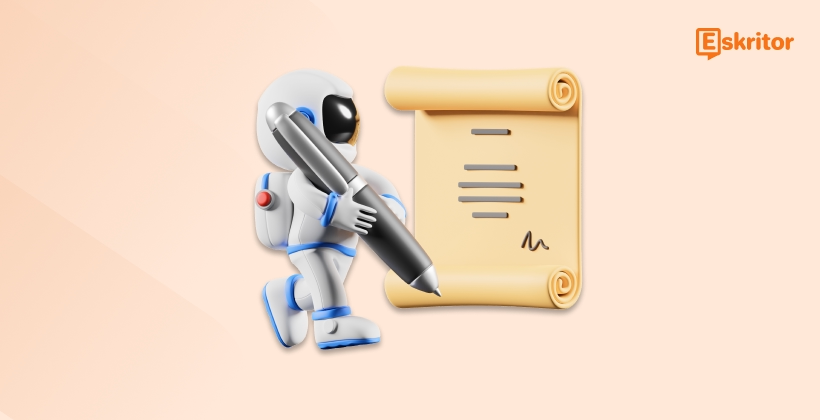How AI Writers Are Transforming Content Creation
How AI Writers Are Transforming Content Creation
Blog Article
Why AI Editing is Revolutionizing Proofreading
As artificial intelligence (AI) evolves, it remains to revolutionize how exactly we approach contemporary editing practices. From grammar correction resources to advanced material generation systems, ai grammar checker is reshaping the way in which authors, authors, and creators improve their work. This blog considers the position AI plays in modern modifying and the impact it has across industries.

AI-Powered Instruments Major the Demand
AI-powered instruments have become an fundamental element of modifying workflows. Pc software fueled by natural language control (NLP) and machine understanding can perform responsibilities like grammar checks, stylistic recommendations, and phrase restructuring with unbelievable pace and accuracy.
As an example, AI-based syntax pieces may recognize mistakes that the eye might ignore, such as subject-verb deal issues or misplaced modifiers. Similarly, fashion enhancements created by AI ensure that tone and flow align with the intended audience, which will be priceless for skilled editors.
These instruments are not only restricted to conventional grammar corrections. They are capable of increasing readability, transforming inactive style to effective style, and actually paraphrasing entire paragraphs without adjusting the meaning.
Efficiency Matches Time Savings
Studies show that the utilization of AI tools can lower editing time by around 30%. In place of poring around every phrase personally, publishers may concentration their attempts on creative and proper elements of content. This shift enables experts to manage larger amounts of text in smaller intervals, that is particularly valuable for industries like writing and electronic marketing.
Additionally, predictive AI functions can spotlight repeating problems, supporting authors boost their abilities around time. For companies, that means less methods allocated to changes and more refined results right from the start.
Improving Accessibility and Globalization
AI's role in modern modifying runs beyond efficiency. Sophisticated interpretation and localization methods let makers to adapt content effortlessly for worldwide audiences, deteriorating language barriers with precision. That technology assures that the exact same meaning may resonate with cultures world wide while preserving its authenticity.
AI also increases inclusivity criteria by improving accessibility in content. For instance, calculations can identify potentially non-inclusive language and recommend alternatives. That ability allows authors to refine writing so that it resonates with diverse audiences.

Striking a Balance Between AI and Individual Creativity
While AI excels in rate and reliability, it does not change individual editors. Products frequently lack the capacity to interpret nuance, emotion, or ethnic context fully. The ideal program combines AI's efficiency with human imagination and perception, leading to truly outstanding work.
By leveraging these systems in modern editing practices, makers and publishers alike may create high-quality content that aligns with the fast-paced requirements of today's electronic world. AI may be the potential of modifying, but the individual feel can be needed for storytelling and connection. Report this page